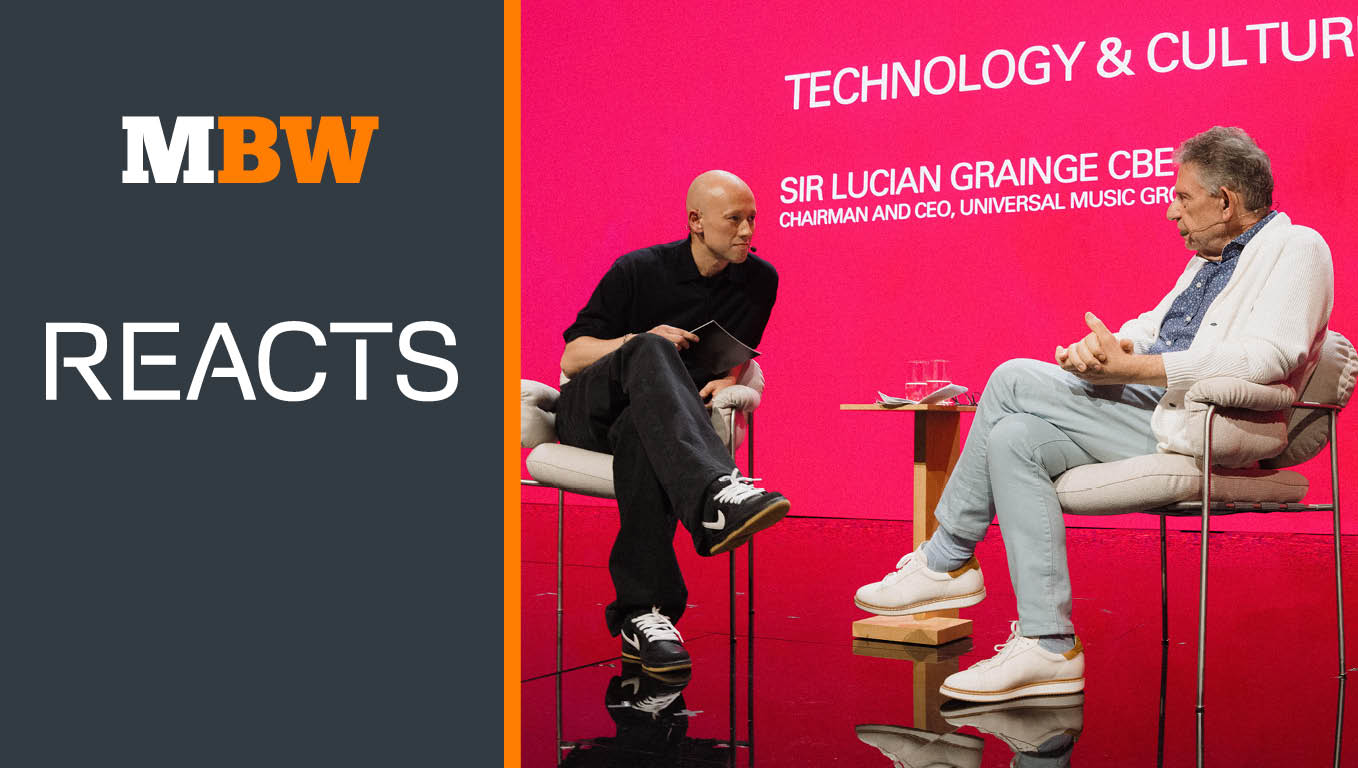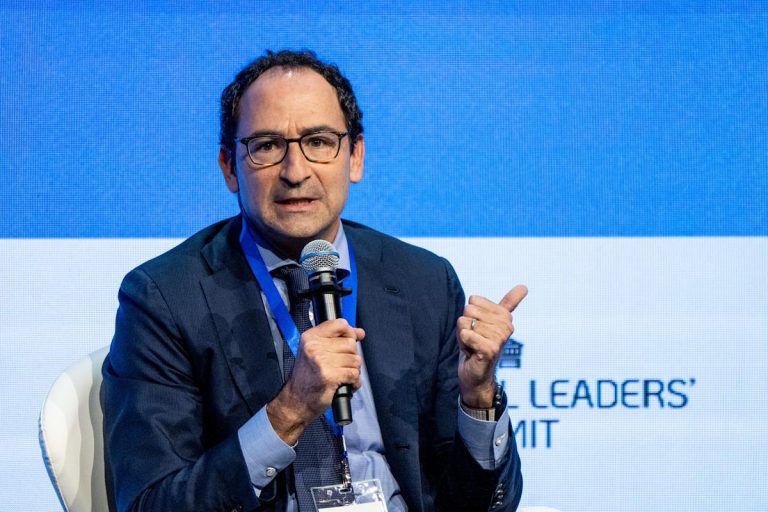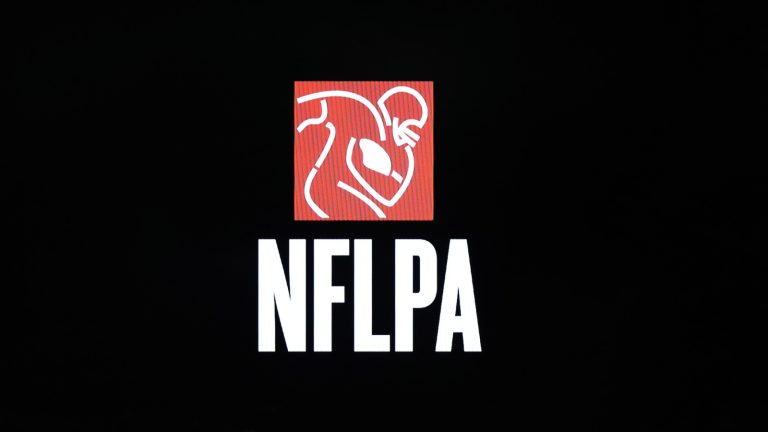Universal Music Group Chairman and CEO Sir Lucian Grainge sat down for a fireside chat with Spotify‘s Alex Norström (Co-President, Chief Business Officer) at the Brilliant Minds conference in Stockholm last week.
The conversation touched on everything from Grainge’s approach to managing creative talent, to his views on the role of AI in music creation.
During the wide-ranging discussion, Grainge reflected on his decades-long career in the music industry, emphasizing his identity as a “talent scout” and his passion for supporting both artists and entrepreneurs.
Grainge also addressed the importance of “responsible AI” and protecting artists’ rights in an era of rapidly advancing technology.
Here are five things we learned…
1. Sir Lucian Grainge still considers himself a ‘talent scout’ and believes the best art sometimes comes from conflict
Despite his position as head of the world’s largest music rightsholder, Grainge still sees himself as a talent scout.
“I started as a talent scout, and I still describe myself as one,” he said during the conversation with Spotify’s Alex Norström.
He explained that this mindset extends beyond just signing artists: “Part of that is backing the next cycle of entrepreneurs, protecting them, coaching and managing them, sometimes confronting them and having conflict,” he said.
“Sometimes the best art comes from conflict.”

UMG’s CEO also acknowledged the challenges that come with managing creative talent: “Managing talented people and creators, some of them are unmanageable, but I’ve never been scared of that,” he said.
“That’s part of their skill, part of their gift, and part of their expression.”
2. Global access to music due to streaming is creating opportunities for artists from previously underrepresented regions
Grainge highlighted how streaming has fundamentally changed which artists can achieve global success. “For the first time ever, with music in the cloud, and to a great extent through our business partnership [with Spotify], anything can be heard instantly,” he said.
He pointed to a recent awards ceremony as evidence of this shift: “Going back over the last 40-50 years, they would historically have given the creative awards to mostly Americans or Brits, but the two people given awards were from Korea and Puerto Rico.”
Looking ahead, Grainge sees even greater potential: “We’re seeing there’s absolutely no reason why brilliant songs, brilliant artists and great imagination from Japan, from India, possibly even from China, can’t be shared and enjoyed globally.”
3. AI cannot replicate authentic artistry, but it can support the creative process
Grainge was asked by Norström to share his thoughts on artificial intelligence in the music business.
UMG’s Chairman and CEO drew a clear line between AI’s potential as a creative tool versus its limitations in replacing human creativity.
“Do I think that the next Elton John will come from AI or from a program? The answer is that it can’t,” he stated firmly.
“Do I think that the next Elton John will come from AI or from a program? The answer is that it can’t.”
He elaborated on what makes human creativity irreplaceable: “My lifeblood, our lifeblood, is brilliance and authenticity and unique creation. You can’t fake being Amy Winehouse, or fake that music. Every style of music has come from someone’s passion and their imagination.
“So, do I think that that can be replicated? No, but it can be copied. Do I think that there can be things that can be generated that can give fun and pleasure? Possibly.”
Grainge acknowledged, however, AI’s potential to assist creators: “All media, all content, has done extremely well out of every technological advancement.
“Daniel [Ek, Spotify CEO] and I were talking about how we’ve leaned into every transformational shift. I know that there will always be technology that will help push the boundaries for musicians, on a bridge, on a verse, or in a lyric.”
He also gave the example of a hypothetical songwriter experiencing writer’s block for three months, asking: “Do I think that technology will be able to support that? The answer is absolutely yes.”
4. ‘Responsible AI’ regulation is crucial for protecting artists’ rights
While embracing AI’s creative potential, Grainge emphasized the need for proper regulation.
“Something that I do care deeply about from a regulation and from a political point of view is responsible AI,” he said.
“[Protecting] name and likeness, authenticity and stopping the ability for someone to create falsehoods are things that I do care deeply about.”
Grainge framed this not as resistance to technology but as protection of music’s unique value: “It’s not on the negative or defensive side; It’s on the responsible side because music is incredibly important.
“There is a beauty to music and a beauty to all the artistry that we’ve seen today. They make us feel differently to any other form of content or media.”
5. Music’s universal appeal makes it as essential as ‘food and oxygen’
Grainge concluded the conversation by emphasizing music’s fundamental importance to human experience.
“You can find people that don’t like books, people that don’t like news, people that don’t like TV series, people that don’t go to the movies. It’s impossible to find anyone that doesn’t like music,” he said.
“Music is as critical as food and oxygen.”
When Norström asked if Grainge “[believe’s] this is the beginning of a new era for art,” he shared his optimism about the long-term value of music: “Yes, I have to, but there always has been and there always will be art,” he said.
He added: “Music has been around for a thousand years, and it’ll be around for thousands more, as long as there is civilization to enjoy it.
“There’s joy, rhythm, emotion and I think music is as critical as food and oxygen.”
Music Business Worldwide








